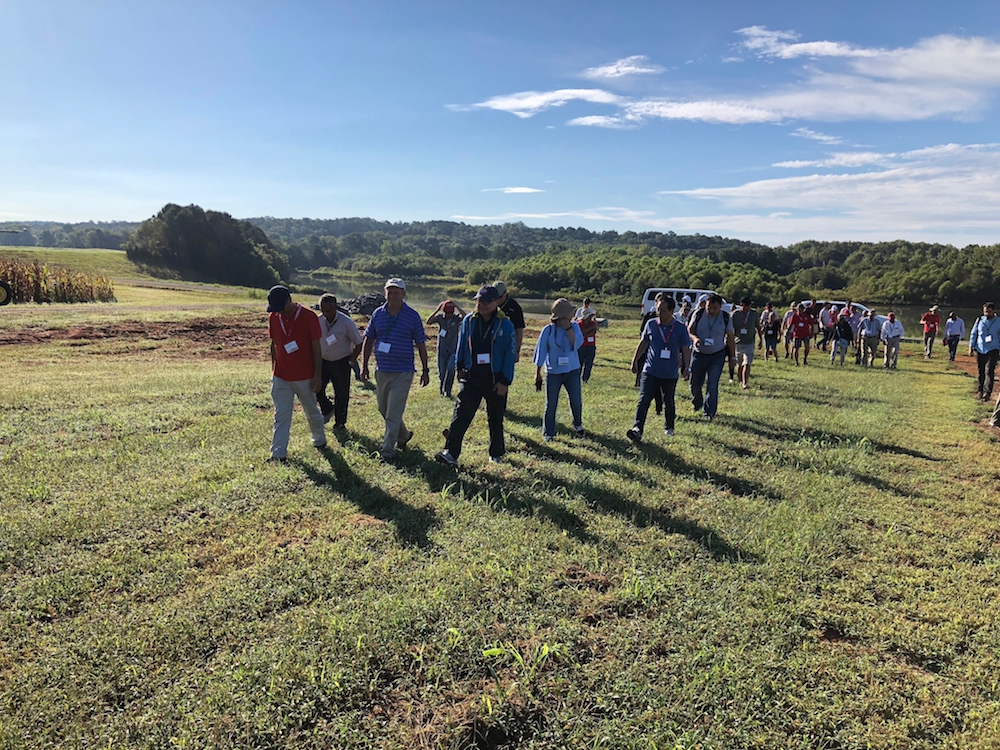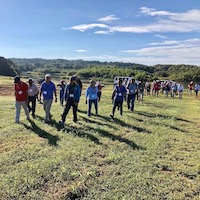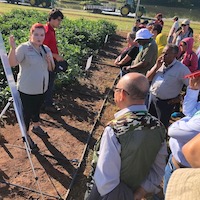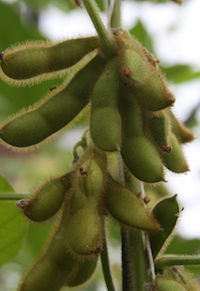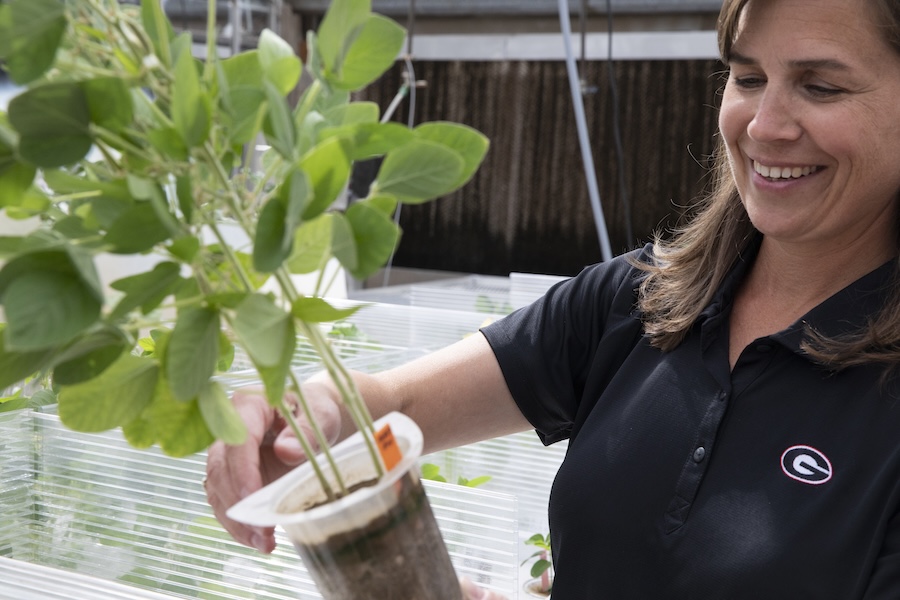People don’t often associate Georgia with soybeans, but for a time last week, the state became the epicenter for international soybean science.
More than 300 plant breeders, molecular biologists and commercial researchers converged on Athens, Georgia, for the 17th Biennial Conference on the Molecular and Cellular Biology of the Soybean.
The meeting showcased new research in gene characterization, genome editing, soybean engineering, and soybean biology and environmental interaction. Presenters came from around the globe and were hosted by University of Georgia soybean scientists and College of Agricultural and Environmental Sciences professors Scott Jackson, Zenglu Li and Wayne Parrott.
“We really had some of the most cutting-edge concepts and ideas in soybean biology presented this week,” said Jackson, of the UGA Center for Applied Genetic Technologies. “From increasing yield to achieving insect and disease resistance, understanding the molecular biology of the soybean is going to help us build a more bountiful and sustainable food supply as the world’s population grows.”
Farmers around the world grow about 250 million acres of soybeans, and the demand for the crop is growing. In 2018, soybean acreage planted in the U.S. overtook the nation’s planted corn acreage for the first time. Georgia farmers grow about 180,000 acres each year mainly to produce cooking oil.
“The soybean is a key crop for meeting the nutritional needs of the increasing global population,” Parrott said. “A thorough understanding of soybean genetics is important for the development of new soybean varieties to meet the nutritional, environmental and industrial requirements that soybeans could fulfill over the coming decades.”
In addition to the four-day molecular biology conference, UGA’s soybean scientists, led by Li, hosted the two-day 2018 Soybean Breeders Tour. The tour highlighted UGA’s soybean research and UGA Cooperative Extension work. It attracted about 160 soybean breeders and soybean specialists.
“We wanted to share the work we’re doing with soybeans at UGA,” Li said. “Researchers at UGA are focused on both the basic and applied sides of soybean research, and the Soybean Breeders Tour allowed us to showcase how basic and applied soybean research come together to benefit our soybean growers and to improve the security of our food system.”
For more information about soybean breeding and molecular biology at UGA, visit cropsoil.uga.edu.

